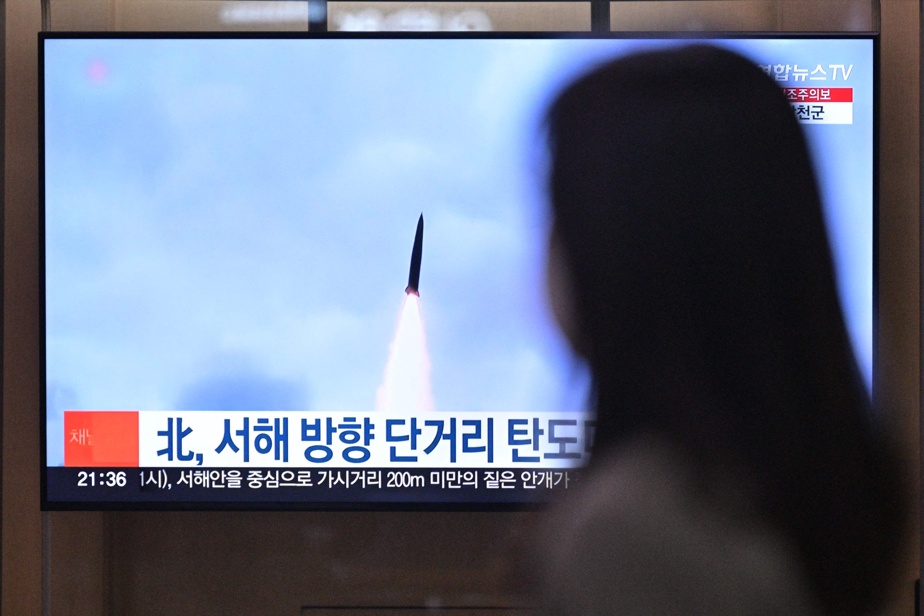
(Seoul) South Korea and the United States on Monday began their largest joint military exercises in five years, despite threats from North Korea, which announced hours earlier that it had launched two cruise missiles from a submarine.
Washington and Seoul have stepped up their defense cooperation in the face of growing military and nuclear threats from Pyongyang, which has increased weapons tests in recent months.
The allies said the “Freedom Shield” maneuvers between US and South Korean forces, which begin Monday and last at least 10 days, will focus on the “changing security environment” due to North Korea’s heightened aggressiveness.
In a rare incident, the South Korean military revealed in early March that special forces from Washington and Seoul would conduct “Teak Knife” military exercises – which consist of simulating precision strikes on key facilities in North Korea – ahead of Freedom Shield.
All of these exercises infuriate Pyongyang, which considers them general exercises to invade its territory or overthrow its regime, while justifying its nuclear and ballistic weapons programs by the need to defend itself.
Today, Monday, North Korea’s North Korean news agency reported that North Korea launched two cruise missiles from a submarine.
The Korean Central News Agency says the exercises were successful, with the missiles hitting their designated and unidentified targets off the eastern coast of the Korean peninsula.
“fixed position”
The agency stressed that this shot expresses North Korea’s “firm stance” in the face of the situation in which “the US imperialists and South Korean puppet forces are advancing in a less and less subtle way in their military maneuvers against the Democratic People’s Republic of Korea.” Democratic People’s Republic of Korea.
The Korean Central News Agency quoted Kim Yo Jong, the very powerful sister of North Korean leader Kim Jong Un, as saying that intercepting missiles launched by her country “would be considered a clear declaration of war.”
“Pyongyang has military capabilities under development and wants to test them anyway, and likes to use the cooperation of Washington and Seoul as an excuse,” Leif Eric Eisley, a professor at the University of Iowa, told AFP from Seoul.
In 2022, North Korea calls its status as a nuclear power “irreversible” and conducts a series of ballistic tests in violation of UN resolutions.
On Friday, KCNA reported that Kim Jong Un had ordered his military to intensify military exercises for a “real war”.
She also said on Sunday that “important practical measures were discussed and adopted for a more effective, powerful and offensive use of war deterrence,” at a meeting of the Central Military Commission of the ruling Workers’ Party chaired by Kim Jong Un.
Washington has repeatedly affirmed its “unwavering” commitment to defending South Korea using “the full range of its military capabilities, including nuclear capabilities” and recently sought to reassure Seoul of its expanded deterrent capacity for its allies.
Non-nuclear South Korea remains formally committed to non-proliferation, even as domestic calls for the country to acquire its own nuclear weapons grow.
nuclear test?
Although the two countries’ official policy toward the North, that the North Korean leader give up his nuclear weapons and return to the negotiating table, has not changed, experts believe there has been a change in practice.
The defector, Ahn Chan-il, director of the International Institute for North Korea Studies, told AFP that Washington had “actually recognized that North Korea will never give up its nuclear programme.”
He added that the “Shield of Freedom” would therefore be “completely different – qualitatively and quantitatively – from previous joint exercises that took place in recent years.”
North Korea, which recently called for a “massive” increase in weapons production, including tactical nuclear weapons, is expected to respond with missile strikes and military exercises.
“North Korea will use Freedom Shield 2023 to unite its people and use it as an excuse to increase investment in weapons of mass destruction,” Senior General Chun In Bum told AFP.
More missile launches are expected, with differences in style and range, and even a nuclear test. More acts of intimidation from North Korea would not be surprising, he added.
But Hong Min of the Korea Institute for National Unification said North Korea should not “cross the red line”.
He told AFP that the regime should refrain from activities “that might force the United States and South Korea to retaliate.”






